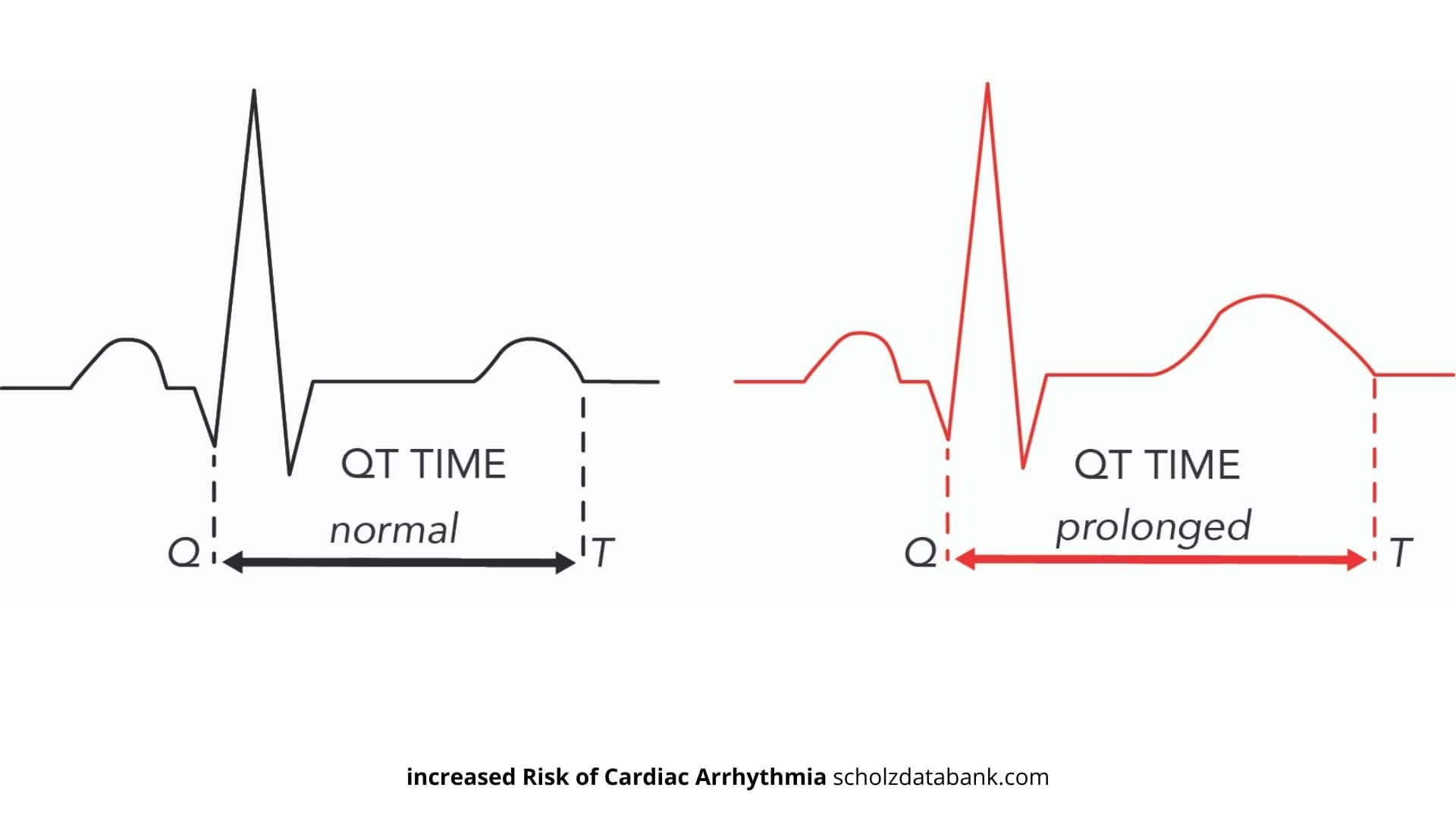Drug-induced QT Prolongation may be one of the most dangerous adverse drug effects. The QT interval in the ECG is the time where your heart beats and then recovers from the beat, and this recovery time should not last too long. Substantial QT prolongation with QT time longer than 500msec or changes by more than 60msec are serious risks for severe heart rhythm disturbances (cardiac arrhythmia). Such arrhthymia can degenerate into so called “Torsades de pointes” and fibrillation of the heart chamber (ventricular fibrillation) and lead in the worst case to sudden cardiac death.
SCHOLZ DataBank is a drug information system used for more than 20 years in doctor’s office software to support prescription writing and drug interaction checking. It is based on the FDA’s National Drug Code (NDCCODE), the RxNorm listings of the National Institute of Health (NIH), up-to-date Prescriber Information and literature. Per October Update 2020 SCHOLZ DataBank contains 168 ingredients marketed in 1752 U.S. brand or generic drugs which have the potential to cause or contribute to the prolongation of the QT interval. This number amounts roughly to 10% of the Rx and OTC drugs marketed in the United States. In most cases these prolongations are small and harmful events are very rare. Due to drug drug interactions, side effects and risk factors, however, the incidence of severe disturbances of the heart rhythm may become more frequent and the risk of a fatal outcome becomes unacceptably high (1, 2, 3).
The spectrum of drugs contributing to the problem is very broad and reaches from so-called antiarrhythmic drugs over many antipsychotics, antidepressants, pain killers, and antibiotics till to simple drops against nasal congestion. Even healthcare professionals may be at risk to loose control in complex scenarios where elderly patients are on polypharmacy with multiple prescribed drugs and OTC on top.
Therefore, patients should be able to protect themselves from risks due to QT prolongation. SCHOLZ QT brings help to all these people. It is an easy to use APP for everybody to check if the permanently and the acutely needed drugs may cause a clinical significant risk of QT prolongation. And if caution is indicated or a doctor should be consulted for advice and prevention of avoidable harm.
Find more information about SCHOLZ QT and where to download the Scholz QT App in the Patient's section of our website.
October 27, 2020
Wolfgang Scholz, Founder
Literature:
1) Matthew Li and Liz G Ramos: Pharmacy and Therapeutics, 2017 Jul; 42(7); 473-477
2) Peter J Schwartz and Raymond L Woosley;
Journal of the American College of Cardiology,
Vol. 67, No. 13, 2016, 1639 -50
3) James E Tisdale: Can Pharm J, 2016 May; 149(3): 139-152
2) Peter J Schwartz and Raymond L Woosley;
Journal of the American College of Cardiology,
Vol. 67, No. 13, 2016, 1639 -50
3) James E Tisdale: Can Pharm J, 2016 May; 149(3): 139-152

